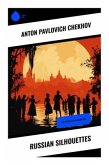In "With Fire and Sword," Henryk Sienkiewicz presents an epic narrative set against the backdrop of the 17th-century Polish-Lithuanian Commonwealth, interweaving themes of patriotism, heroism, and tragedy. Through a rich tapestry of characters and dramatic events, Sienkiewicz employs a vivid literary style that blends historical fact with romantic adventure, creating a novel that is as much a reflection on the complexities of national identity as it is an exploration of personal valor amidst wartime chaos. The book, originally published in 1884, serves not only as a gripping story of battles and betrayals but also as a call to remember the past and the sacrifices made for the nation's future. Henryk Sienkiewicz, a Nobel Prize-winning author, drew from his own national experiences and cultural heritage as a Polish patriot while writing this monumental work. Living through turbulent times in Poland, witnessing the struggle for independence, and labeled as a national bard, Sienkiewicz infused his narrative with a deep sense of longing and duty to his homeland. His profound understanding of history and human nature informs the characters' motivations and the wider political landscape. "With Fire and Sword" is highly recommended for readers seeking an immersive historical experience that highlights the resilience of the human spirit. This powerful narrative invites discussions about history, morality, and the essence of freedom, making it a valuable addition to both literary and historical study.
Bitte wählen Sie Ihr Anliegen aus.
Rechnungen
Retourenschein anfordern
Bestellstatus
Storno








